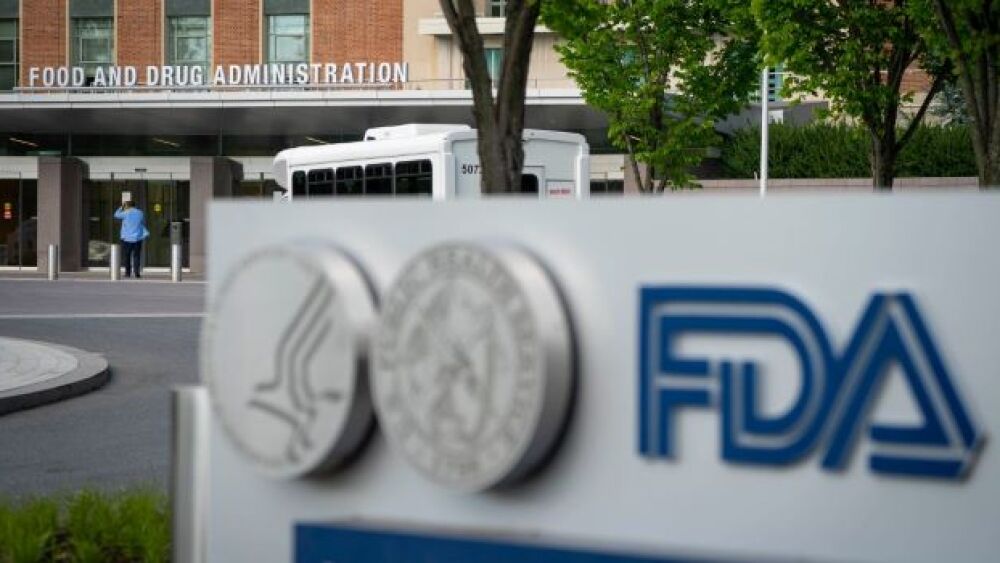Gamida Cell reported that the FDA had lifted its clinical hold on its cryopreserved formulation of GDA-201. It expects to launch a Phase I/II drug trial for those indications this year.
Sarah Silbiger/Getty Images
Boston-based Gamida Cell reported that the U.S. Food and Drug Administration had lifted its clinical hold on the company’s cryopreserved formulation of GDA-201.
GDA-201 is an off-the-shelf cell therapy candidate intended to treat follicular and diffuse large B cell lymphomas. The company expects to launch a Phase I/II trial of the drug for those indications this year.
In Gamida’s fourth-quarter earnings call on March 15, Gamida Cell CEO Julian Adams, Ph.D., said, “In September 2021, we submitted an IND application of the FDA for a Phase I/II trial with a cryopreserved formulation of GDA-201 in patients with diffuse large B-cell lymphoma and follicular lymphoma. Following this submission, we were placed on clinical hold in November of 21, prior to patients being dosed since the FDA had questions about donor eligibility procedures and assay qualification.”
GDA-201 utilizes the company’s proprietary NAM technology platform to expand the number and functionality of natural killer (NK) cells to direct tumor cell killing properties and antibody-dependent cellular cytotoxicity (ADCC). The therapy demonstrated significant clinical activity in a Phase I/II trial of the drug with rituximab in relapsed or refractory lymphoma. Of 19 non-Hodgkin lymphoma (NHL) patients, 13 had complete responses, and one had a partial response, with an overall response rate of 74% and a complete response rate of 68%.
“FDA clearance of our IND for the cryopreserved formulation of GDA-201 represents a significant milestone for the company and reflects our team’s expertise in the development of NAM-enabled cell therapy,” Adams said. “Previously announced data from an investigator-sponsored (IS) study evaluating the fresh formulation of GDA-201 demonstrated durable complete responses in heavily pretreated patients with relapsed or refractory lymphoma. We are pleased to advance our plans to begin the company sponsored Phase I/II study and progress our novel cryopreserved formulation of GDA-201 with objective to address the unmet need that exists for patients with follicular and diffuse large B cell lymphomas.”
This week, the company also presented updated infection data on its omidubicel compared to umbilical cord blood transplantation (UCB) at the 2022 Transplantation & Cellular Therapy Meetings of ASTCT and CIBMTR Tandem Meetings (TCT) held in Salt Lake City, UT, April 23-26, 2022.
Omidubicel is the first bone marrow transplant product the FDA has granted Breakthrough Therapy Designation. Gamida believes it has the potential to be the first FDA-approved advanced cell therapy for allogeneic bone marrow transplant. It has also received Orphan Drug Designation in the U.S. and European Union.
In January 2022, Gamida reported that after receiving positive Type B meeting correspondence with the FDA, it planned to initiate the rolling BLA omidubicel. The FDA had requested a revised analysis of its manufacturing data for its wholly owned commercial manufacturing plant in Israel. The agency required the company to demonstrate the analytical comparability to the Switzerland-based Lonza clinical manufacturing plant that produced omidubicel for the company’s Phase III trials.
Having agreed that its factory was producing equivalent drug products as the Lonza plant, Gamida could continue with its rolling submission, which it did in the first quarter. No additional clinical data was required. Gamida believes the submission is on schedule to be completed in the second quarter of this year.
At the time, Adams said, “We are very pleased that our productive interactions with the FDA have resulted in alignment on the omidubicel manufacturing comparability analysis and agreement to initiate a rolling submission of our BLA application.”
During the presentation at this week’s meetings, Dr. Ronit Simantov, M.D., Gamida’s chief medical officer, said, “These data provide mechanistic support for the reduced infection rates seen with omidubicel-treated patients in the Phase III study, and clear demonstration of the benefits of omidubicel over standard cord blood transplantation, which can be associated with immune and hematopoietic recovery challenges that are devastating to patients. As we advance omidubicel through the FDA review process, these data demonstrate that the therapy has the potential to change the outlook for patients suffering from blood cancer, who all too often struggle with post-transplant recovery complications.





